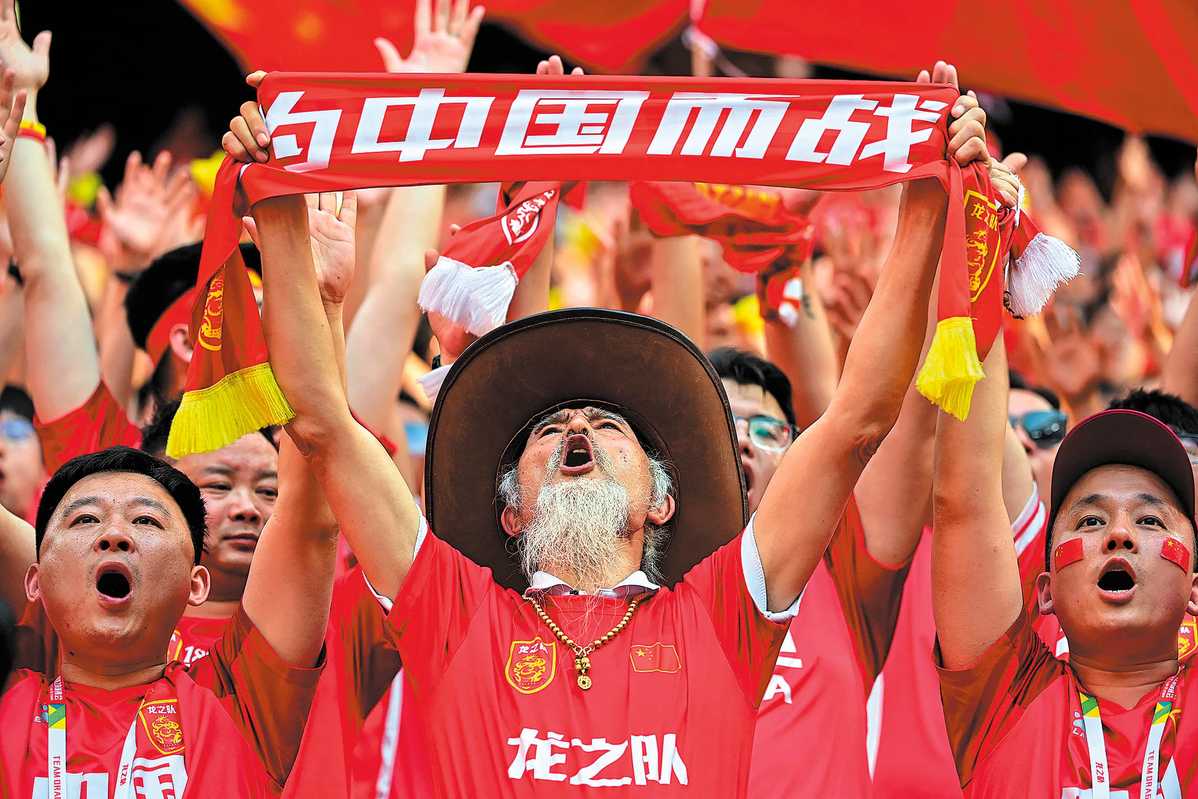
Calling for concerted efforts in youth training and its anti-graft campaign, China's central government has reiterated its commitment to improving the country's soccer program to match its global ambition.
After failing to qualify for the FIFA World Cup six times in a row, the Chinese men's national team's underachieving international record has emerged as a pressing issue on the country's agenda for building balanced sporting prowess across a number of disciplines on the global sports stage by the end of 2035 — a target outlined in the country's 14th Five-Year Plan (2021-25).
With a new five-year (2026-30) development period just around the corner, the central government took serious note when State Councilor Shen Yiqin called a high-level meeting recently to hear reports on the promotion of soccer across the country and discuss solutions for a turnround with local sports authorities, club representatives and youth training bodies.
To bring the level of the slumping game up, especially on the men's side, to match China's status as a top contender at the Olympics and Asian Games, the country's soccer development needs an overhaul with a focus on youth training, league operation and clean governance, Shen emphasized in her speech at the meeting.
Shen added that the Chinese government will maintain rigorous disciplinary scrutiny and anti-corruption measures within the sector to make sure the sport's revitalization forges ahead amid a healthy and clean environment.
The General Administration of Sport of China, the country's sports ministry, in response to the top-down instructions, urged regional soccer federations and all relevant departments, such as the Ministry of Education and Ministry of Finance, to work together to implement the youth-first principals entering the new five-year period.
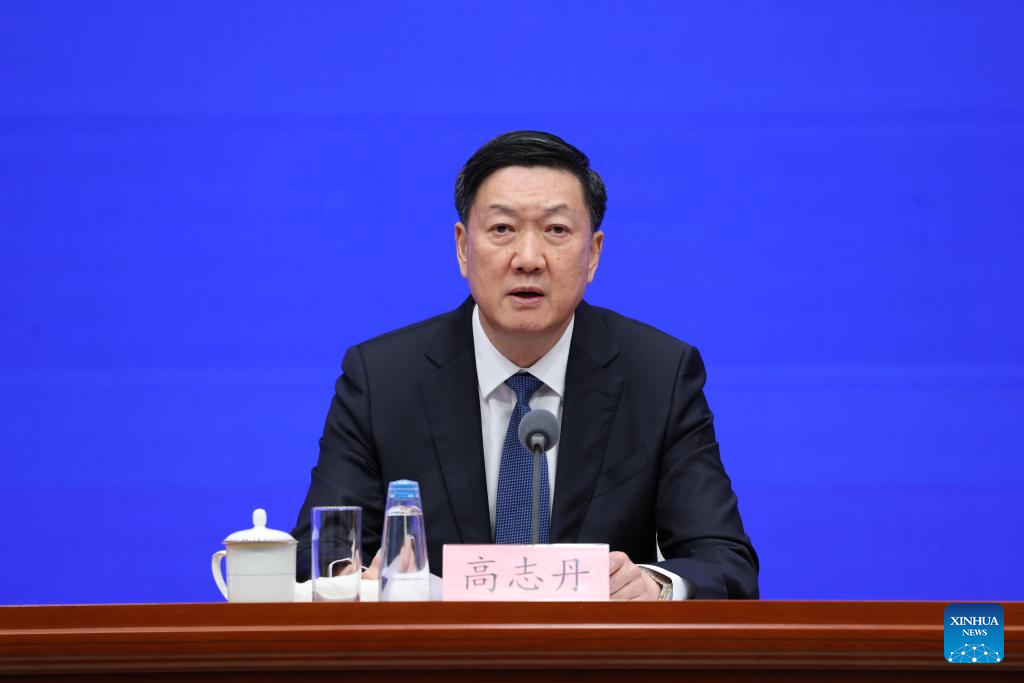
"Developing world-class national teams in the three collective big-ball games (soccer, volleyball and basketball) represents a true global sporting power. Yet, that's where we are falling far behind the world right now, especially in men's soccer," Gao Zhidan, minister of the GASC, said during a Tuesday news conference.
"Having already made progress in the reform of governance and the fight against corruption, we have to invest more in youth development to build for the future from the ground up," he said.
According to Zhang Xin, director of the GASC's competitive sports department, soccer reform has been underlined as a top priority of the "633" project — the country's elite sports development plan for the new five-year period — and will be considered a key criterion in assessing the project's outcome.
ALSO READ: China works to develop itself into an all-around sporting powerhouse
"With our country fast developing across all social and economic sectors, people's expectations for results at the international level from the three ball-sports programs are growing higher, making it a mandate for us to elevate the competitiveness of these teams, particularly men's soccer," Zhang told the news conference.
The "633" project focuses on keeping China's dominance in six strength sports — table tennis, badminton, shooting, weightlifting, gymnastics and diving — at future Olympics, maintaining its progress in swimming, athletics and water sports, such as rowing and canoeing, at the international level, and to improve competitiveness in the three big-ball sports.
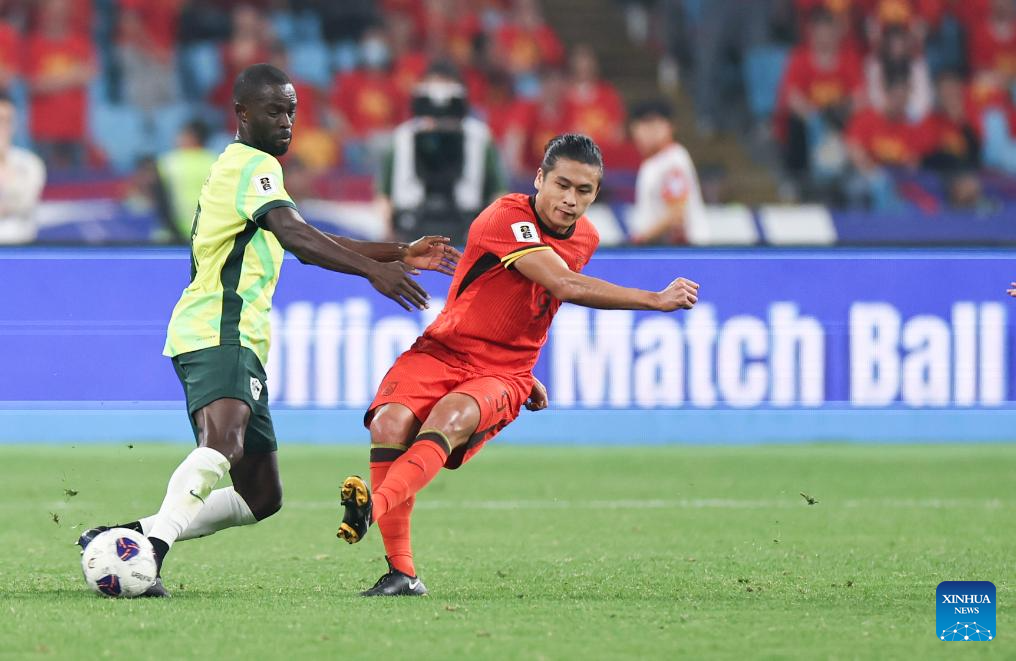
An international turnaround in soccer seems the biggest ask.
Just two months ago, the Chinese men's team's attempt to return to the FIFA marquee tournament for the first time since its sole appearance in 2002 crashed in the third-stage of Asian qualifiers, finishing fifth in its six-team group, with only three wins across 10 matches.
Failing to secure qualification to the expanded 48-team 2026 World Cup finals in the United States, Canada and Mexico next summer drew harsh criticism from fans, media and pundits, alike, with the squad's decline at the continental level particularly disappointing.
As FIFA's No 94-ranked team, and the No 14 side in Asia, Team China's exit was a disappointing, yet technically fair outcome, considering the gap between its youth development program compared to world-class contenders, such as its close neighbor Japan and European power Spain.
For instance, an average 12-year-old Spanish junior player plays 52 official games per season, yet a Chinese kid of the same age might play three tournaments at most, according to Saul Vazquez, a youth training expert from La Liga, who shared his expertise with over 30 Chinese youth coaches and managers at a coaching exchange workshop in Kunming, Yunnan province, last month.
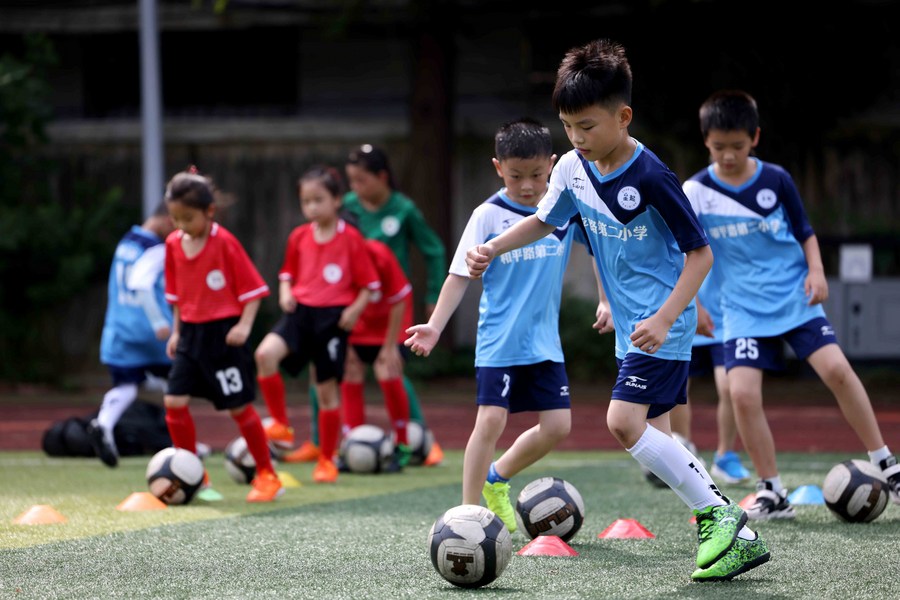
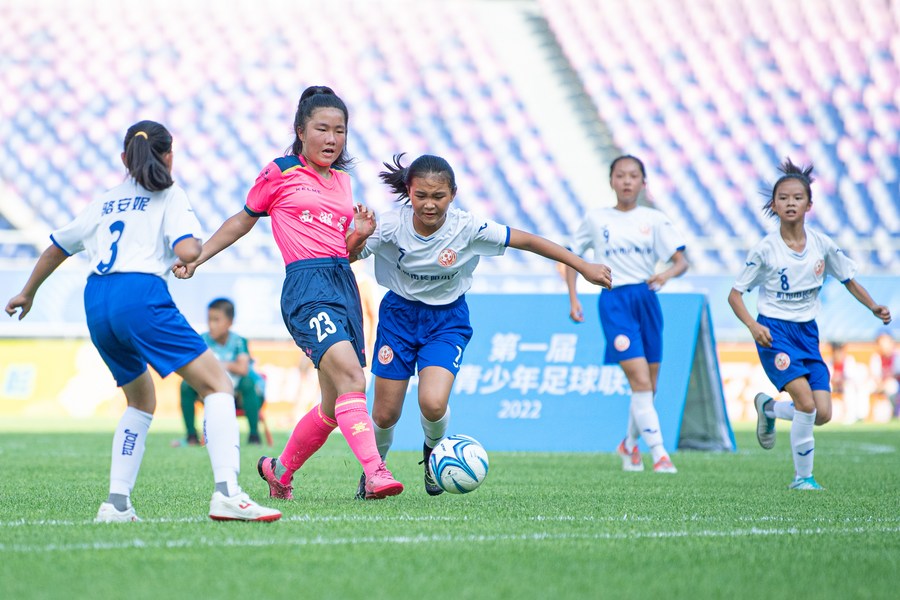
Measures discussed and approved at the recent top-level meeting include the establishment of a five-tier national youth training network, scouting and nurturing talented juniors from county-level centers and promoting the best to city, provincial, regional and then national camps, to build a pyramid system with input from European clubs and international experts.
The China Youth Football League, a national competition for high-school players, has, this year, added a regional division between the provincial preliminaries and the national finals to increase the number of drills for young talent.
Fan Zhiyi, captain of China's 2002 World Cup finals team, stressed that improving the level of youth coaches and trainers should also be a priority.
READ MORE: Chinese government unveils plan to boost football development, youth training
"Many teenagers lack professional guidance at the initial stage of their training, which makes their basic skills poor, leading to bad performances in the future," said the legendary centerback.
Yang Hanchu contributed to this story.


